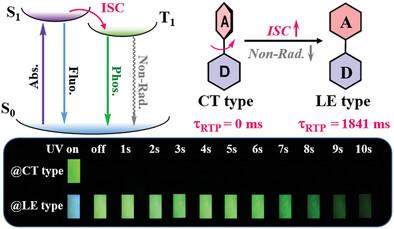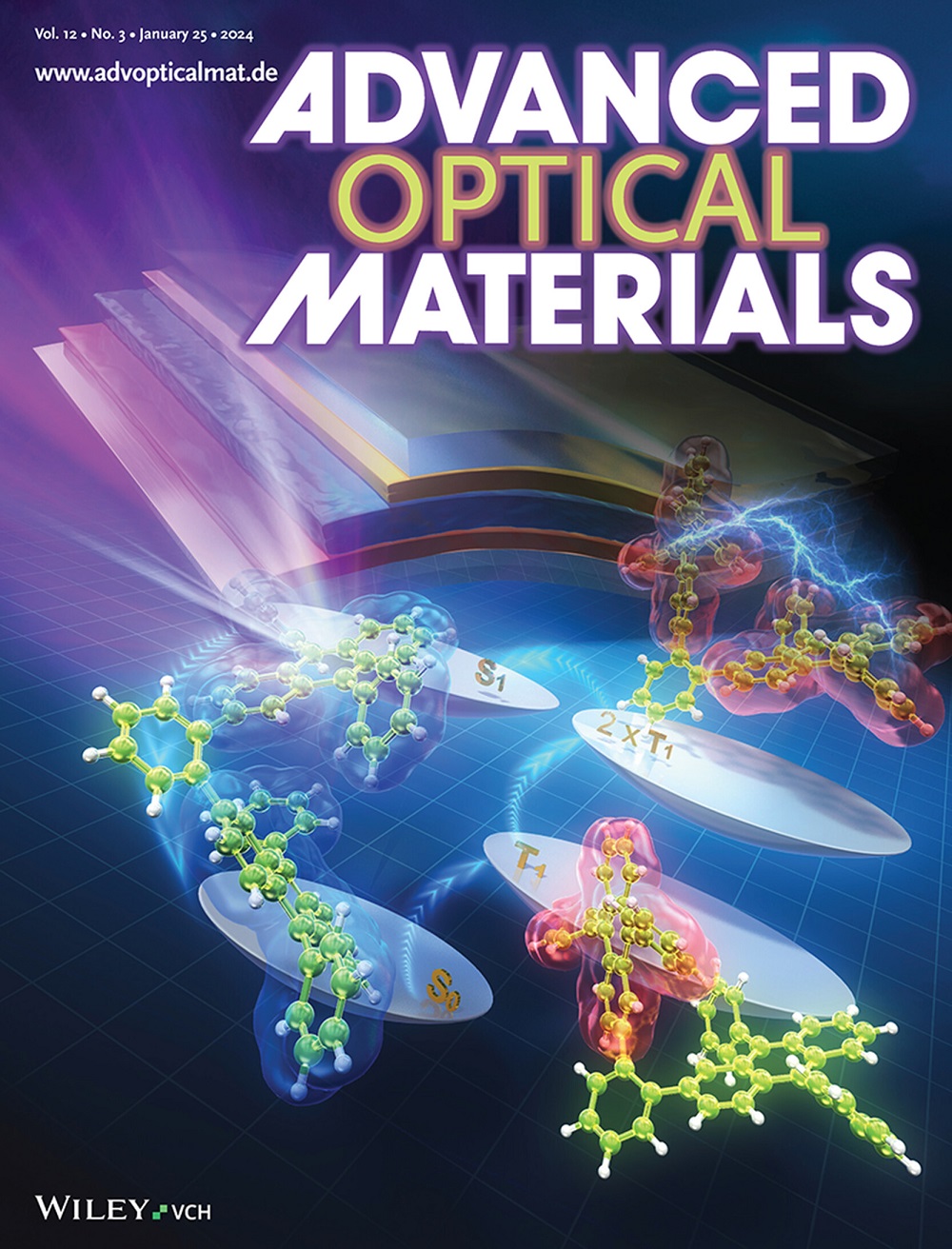The Role of Locally Excited State and Charge Transfer State in Organic Room Temperature Phosphorescence and Corresponding Applications
IF 8
2区 材料科学
Q1 MATERIALS SCIENCE, MULTIDISCIPLINARY
引用次数: 0
Abstract
Donor–acceptor (D–A) structure with charge transfer (CT) effect is widely utilized in the construction of organic luminescent materials. The adjustment of their CT effect and related luminescent property usually relies on the changes of molecular structure with different D or A moieties, which will lead to some uncertainties in structure‐property relationship. With the aim to explore the clear inherent luminescent mechanism for D–A molecule with CT effect, it is ideal that the regulation of intramolecular charge transfer in one same D–A molecule can be realized. Accordingly, three D–A type organic phosphorescence luminogens are designed and synthesized. Once being doped into different polymer matrixes, disparate charge transfer effects and related room temperature phosphorescence (RTP) properties can be achieved for a single molecule. Subsequent experiments confirm that different distributions of molecules with locally excited (LE) state and CT state are mainly responsible for their distinct RTP behaviors, exhibiting the well‐clarified structure‐property relationship of D–A type phosphorescence luminogens. Furthermore, the transition from CT to LE state can even be realized through chemical reaction, leading to the activated RTP effect for practical applications.

局部激发态和电荷转移态在有机室温磷光中的作用及相应应用
具有电荷转移(CT)效应的供体-受体(D-A)结构被广泛应用于有机发光材料的构建中。其 CT 效应及相关发光性能的调节通常依赖于不同 D 或 A 分子的分子结构变化,这将导致结构-性能关系的不确定性。为了探索具有 CT 效应的 D-A 分子清晰的内在发光机理,实现对同一 D-A 分子分子内电荷转移的调控是最理想的。因此,我们设计并合成了三种 D-A 型有机磷光发光剂。一旦掺杂到不同的聚合物基质中,单个分子就能实现不同的电荷转移效应和相关的室温磷光(RTP)特性。随后的实验证实,局部激发态(LE)和 CT 态分子的不同分布是其不同 RTP 行为的主要原因,展示了 D-A 型磷光发光剂清晰的结构-性能关系。此外,CT态到LE态的转变甚至可以通过化学反应来实现,从而产生实际应用中的活化RTP效应。
本文章由计算机程序翻译,如有差异,请以英文原文为准。
求助全文
约1分钟内获得全文
求助全文
来源期刊

Advanced Optical Materials
MATERIALS SCIENCE, MULTIDISCIPLINARY-OPTICS
CiteScore
13.70
自引率
6.70%
发文量
883
审稿时长
1.5 months
期刊介绍:
Advanced Optical Materials, part of the esteemed Advanced portfolio, is a unique materials science journal concentrating on all facets of light-matter interactions. For over a decade, it has been the preferred optical materials journal for significant discoveries in photonics, plasmonics, metamaterials, and more. The Advanced portfolio from Wiley is a collection of globally respected, high-impact journals that disseminate the best science from established and emerging researchers, aiding them in fulfilling their mission and amplifying the reach of their scientific discoveries.
文献相关原料
| 公司名称 | 产品信息 | 采购帮参考价格 |
|---|
 求助内容:
求助内容: 应助结果提醒方式:
应助结果提醒方式:


